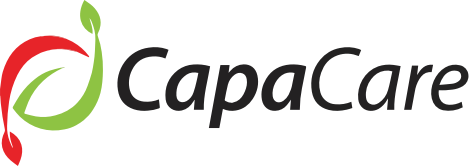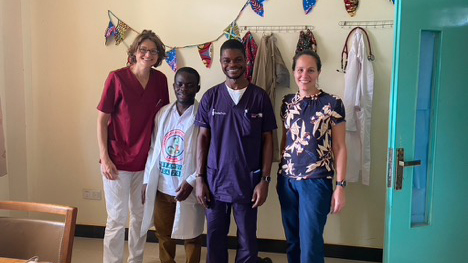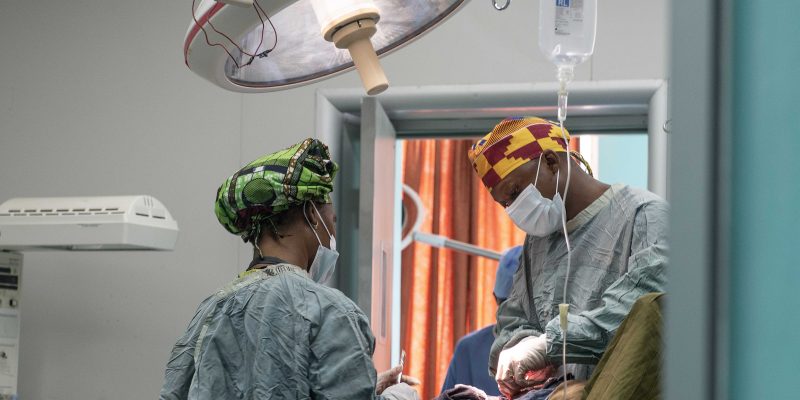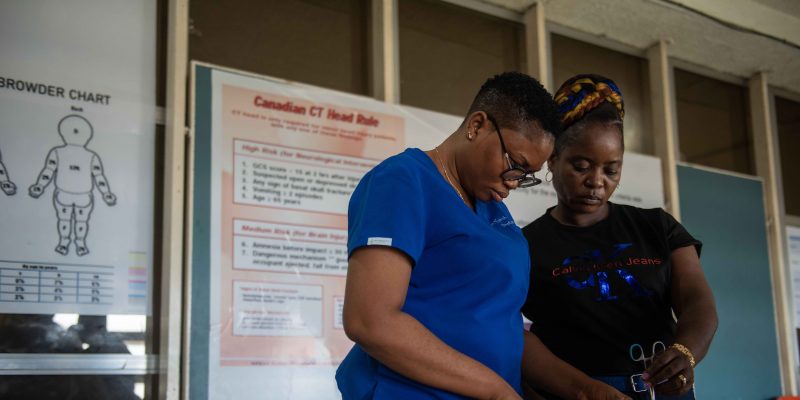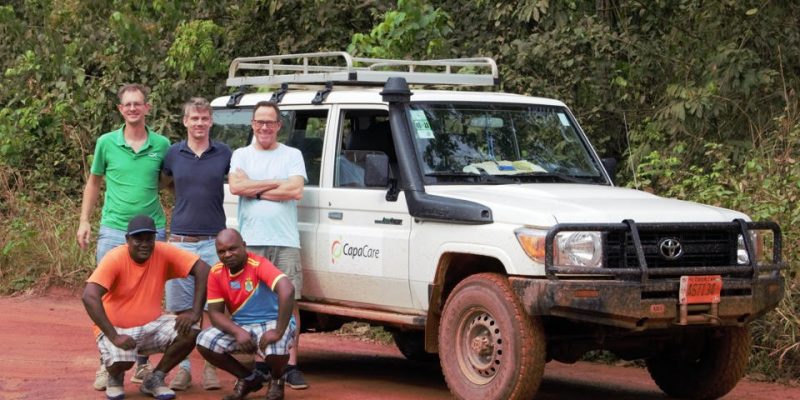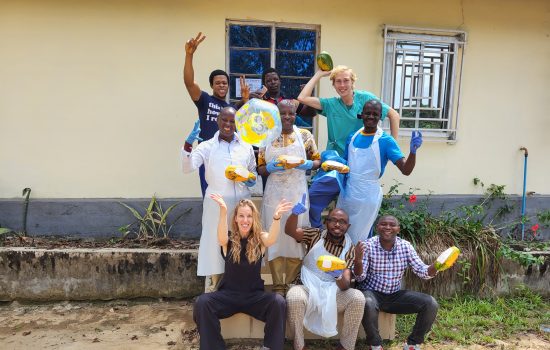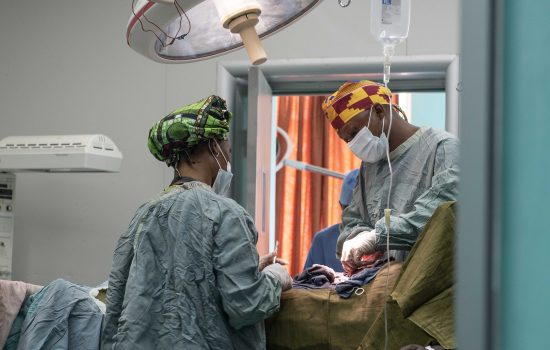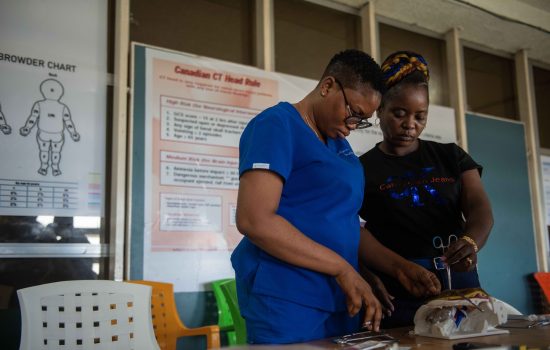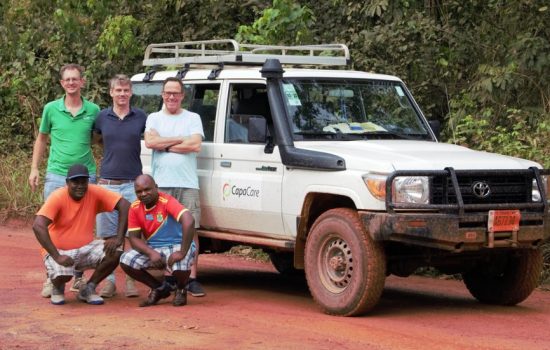Last month, students of the Surgical Training Program took part in the Abdominal course, learning about surgical and non-surgical problems in the abdomen. This course was led by Dr.Lesley Hunt, but several Surgical Community Health Officers (SCHOs) were involved in the teaching part of this course too. This way, the course was at the same time an excellent opportunity to train the SCHOs, our future trainers.
‘Training the trainers’ is an established concept in surgery, whereby those with more experience coach new trainers in order to build a pool of people competent to teach others. The long-term goal of a trainer is not only to make his or herself redundant, but also to pick out and guide those who follow to take things forward and do it even better. A pool of SCHO trainers, who can run all the CapaCare courses in the future by themselves is an important and sustainable goal of our organization. It will not only maintain but also improve the quality of the program: the local trainers live, work and understand Sierra Leone so much better than expatriate trainers are able to. On top of that, CapaCare is very aware of the CO2 emission that comes along with flying in international trainers and therefore wants to reduce the number of flights.
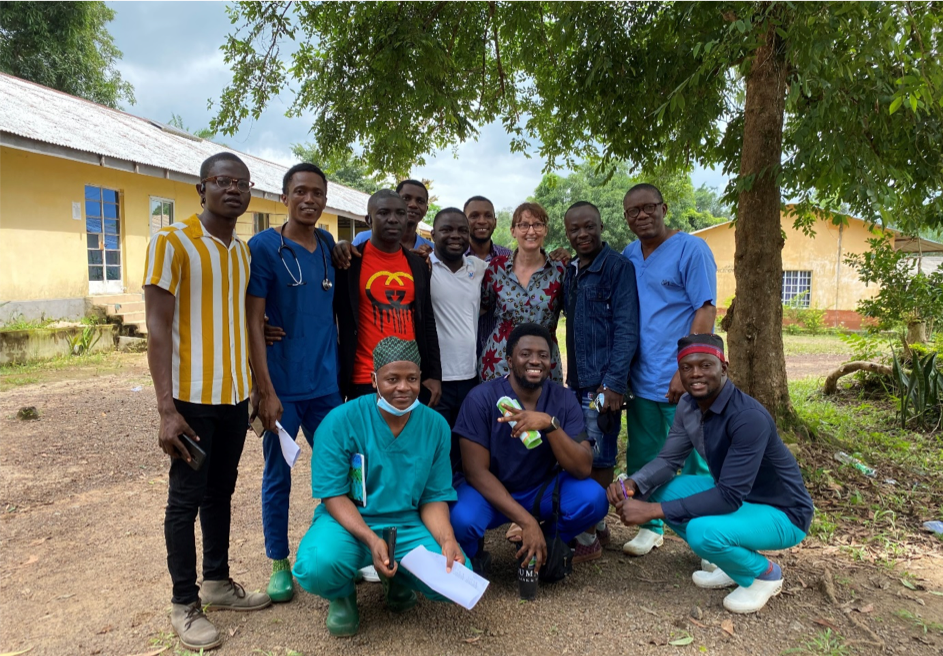 The ‘Abdominal course’-group of July 2021 including its teachers: dr. Lesley Hunt (colorectal surgeon UK) and the 3 SCHO trainers: Sayoh Kanneh (SCHO), Yembeh Mansaray (STPstudent last year), Ishiaka Konneh (SCHO).
The ‘Abdominal course’-group of July 2021 including its teachers: dr. Lesley Hunt (colorectal surgeon UK) and the 3 SCHO trainers: Sayoh Kanneh (SCHO), Yembeh Mansaray (STPstudent last year), Ishiaka Konneh (SCHO).
The theory of training the trainers is becoming practice for CapaCare. Even before the Abdominal course, since 2017, SCHOs have been contributing to several General Surgery courses. Previously, the simulation and hands-on operative training was inefficient with only one expatriate trainer, and has therefore improved greatly due to the SCHO trainers with much more one-on-one training and time for those struggling to grasp a concept. Over the years, the role of the SCHOs expanded to other areas of the courses. They reinterpret concepts in alternative ways and use local language to facilitate greater understanding. They advise the expatriate trainer on optimizing approaches to the setting. They provide local stories and scenarios which help trainees remember factual information. They provided catch-up training for those who got behind or missed parts of the course and last but not least, they act as role models for new students.
Also for the SCHO trainers themselves this is a very effective method of learning. Yembeh Mansaray, one of the SCHO trainers of the Abdominal Course, says:
“Teaching what you have learned, will help you understand and remember it even better”.
Ishiaka Konneh (also SCHO teacher on the Abdominal course) shares:
“Being a teacher not only helps the students, it also helps to improve my own knowledge in the related topics.”
During this last Abdominal course the role of the SCHO trainers reached a new high, when several SCHOs were confident to take over whole sections of a course, with only nominal support of the expatriate trainer. The goal is to have this program completely run by locals in 5 years time. This is the future of CapaCare.
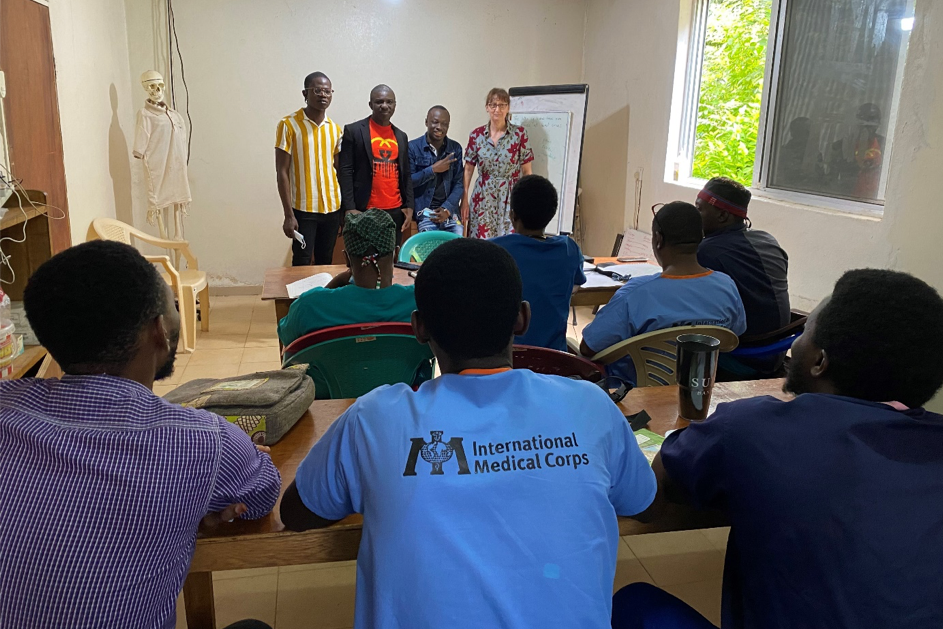
Students listening to the teachers of the ‘Abdominal course’ of July 2021. Teacher in front of the class from left to right: Sayoh Kanneh (SCHO), Ishiaka Konneh (SCHO), Yembeh Mansaray (STPstudent last year), dr. Lesley Hunt (colorectal surgeon UK)
